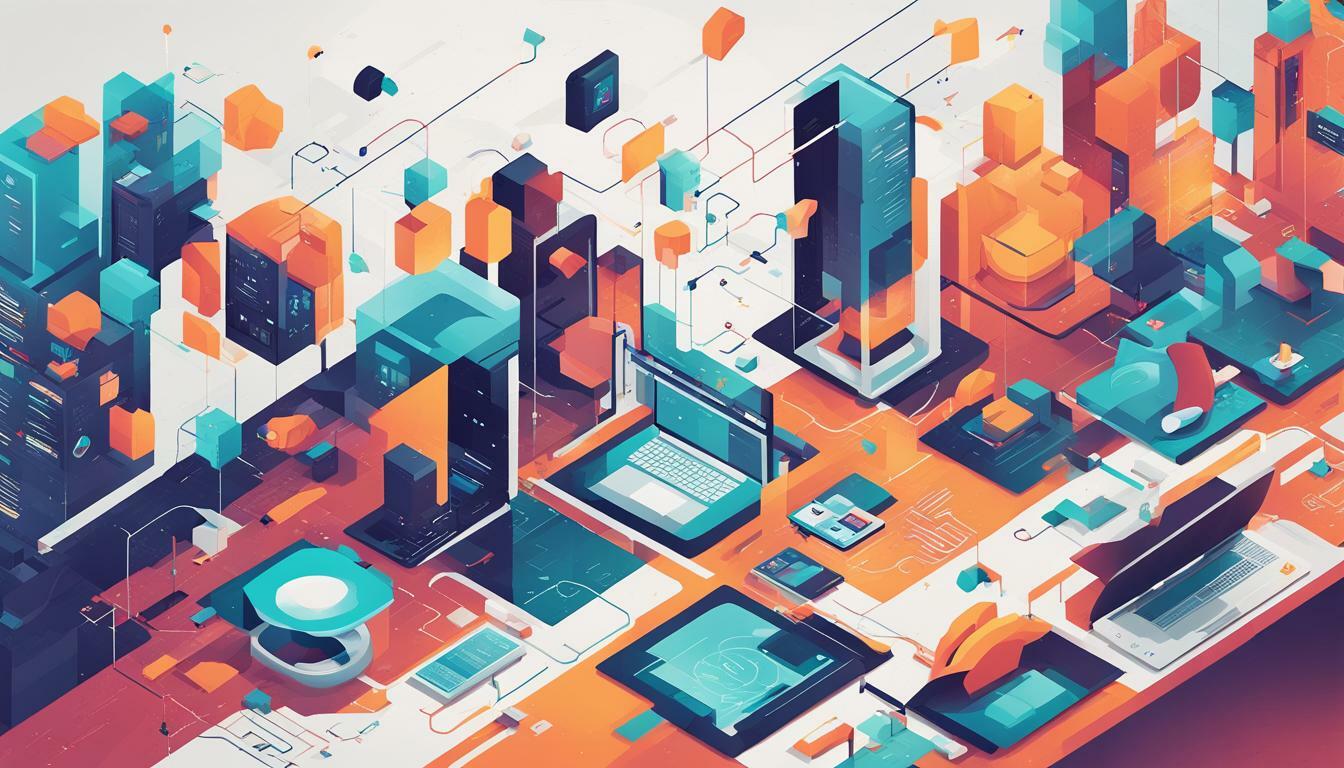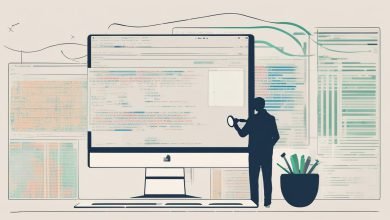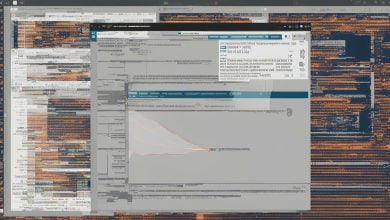
Welcome to the exciting world of experimental coding techniques and their applications! In this article, we will explore cutting-edge coding practices that push the boundaries of traditional coding methods and enable developers to create innovative solutions.
Experimental coding techniques involve using unconventional programming approaches to create new and unique software applications. By experimenting with different coding methods, developers can discover innovative solutions to complex problems that may have been impossible with traditional coding techniques.
Key Takeaways:
- Experimental coding techniques enable developers to create new and innovative solutions.
- Cutting-edge coding practices push the boundaries of traditional coding methods.
- By experimenting with different coding methods, developers can discover unique solutions to complex problems.
Understanding Experimental Coding Techniques
Experimental coding techniques are non-traditional approaches to coding that push the boundaries of what is possible. They are often used to tackle complex problems and create innovative solutions. These techniques are advanced coding practices that require a deep understanding of programming concepts and frameworks.
What is Experimental Coding?
Experimental coding involves exploring new ideas and approaches to traditional coding practices. It involves taking risks and experimenting with new frameworks, tools, and techniques to develop innovative solutions. These techniques are often used to solve problems that cannot be addressed through traditional coding methods.
The Benefits of Experimental Coding Techniques
Experimental coding techniques can provide many benefits to developers and organizations. They enable developers to create innovative solutions that push the boundaries of what is possible. These techniques also promote creativity and innovation within software development teams. In addition, experimental coding techniques can help organizations stay ahead of their competitors by providing unique solutions to complex problems.
The Challenges of Experimental Coding Techniques
Despite the benefits, experimental coding techniques can be challenging for developers and organizations. They require a high level of technical expertise and can be time-consuming and expensive. In addition, these techniques can introduce new risks and limitations that must be carefully considered.
Despite the challenges, experimental coding techniques can be a valuable tool for developers and organizations who are looking to push the boundaries of what is possible in software development. By embracing these techniques, developers can create innovative solutions that address complex problems.
Exploring Cutting-Edge Coding Applications
Experimental coding techniques are opening up exciting new possibilities in the world of software development. By pushing the boundaries of what is possible, developers are creating innovative solutions to complex problems. Let’s take a closer look at some real-world applications of these techniques.
| Coding Application | Description |
|---|---|
| Artificial Intelligence | Experimental coding techniques have enabled the development of advanced AI systems that can learn and adapt to new situations. |
| Virtual Reality | By using experimental coding techniques, developers are creating immersive virtual reality experiences that are more realistic than ever before. |
| Data Visualization | With the help of experimental coding techniques, developers are creating complex data visualizations that provide new insights into large datasets. |
These are just a few examples of how experimental coding techniques are pushing the boundaries of what is possible. By using these techniques, developers are able to create software that is more powerful, flexible, and responsive than ever before.
However, pushing the coding boundaries can also present challenges. Developers must be mindful of potential risks and limitations as they experiment with new coding techniques. But with the right approach and mindset, experimental programming can lead to major breakthroughs in the tech world.
So, if you’re a developer looking to stay at the forefront of the industry, it’s important to embrace experimental coding techniques and keep pushing the boundaries of what is possible.
The Benefits and Challenges of Experimental Programming
Experimental programming, or coding experiments, can open up new possibilities for developers. By embracing new methods and technologies, developers can create innovative solutions that have the potential to change the game. However, as with any experimentation, there are both benefits and challenges to consider.
The Benefits of Experimental Programming
One of the primary benefits of experimental programming is the potential for breakthroughs. By exploring new coding techniques and pushing the boundaries of traditional programming practices, developers can find new solutions to old problems. These breakthroughs can lead to improved software, more efficient processes, and a better user experience.
Another benefit of experimental programming is the potential for increased creativity. By taking a new approach to coding, developers can open up their minds to new ideas and possibilities. Creativity is a key component of successful coding, and experimenting with new techniques can help developers tap into their full potential.
Finally, experimental programming can be a valuable learning experience. By trying new things and exploring new technologies, developers can expand their skill sets and become more versatile programmers. This can lead to exciting new career opportunities and a deeper understanding of coding principles.
The Challenges of Experimental Programming
While experimental programming can be a powerful tool for developers, it also comes with its fair share of challenges. One of the biggest challenges is the risk of failure. Because experimental programming involves exploring new and untested techniques, there is always a risk that the program will not work as intended. This can be frustrating, time-consuming, and even costly for developers.
Another challenge of experimental programming is the potential for increased complexity. By taking a new approach to coding, developers may introduce unfamiliar concepts and technologies that can be difficult to navigate. This can lead to confusion and a longer development process.
Finally, experimental programming can be a time-consuming process. Because developers are exploring new techniques and technologies, the development process can take longer than expected. This can lead to missed deadlines and increased project costs.
Despite these challenges, many developers believe that the benefits of experimental programming outweigh the risks. By embracing new techniques and technologies, developers can create innovative solutions that push the boundaries of what is possible. With careful planning and a willingness to take risks, developers can use experimental programming to drive progress and innovation in the tech industry.
Innovations and Impact in the Tech World
The use of innovative coding techniques has resulted in some remarkable breakthroughs in the tech industry. Developers who embrace experimental coding practices can take advantage of new opportunities to solve complex problems. Here, we highlight some of the most prominent innovations enabled by experimental coding techniques:
Artificial Intelligence and Machine Learning
Experimental coding techniques have paved the way for advancements in Artificial Intelligence (AI) and Machine Learning (ML). One notable example is AlphaGo, a computer program designed to play the board game Go. AlphaGo was developed using experimental coding techniques that enabled it to learn from human players and defeat top-ranked players with ease.
Virtual Reality and Augmented Reality
Experimental coding techniques have also contributed to the development of Virtual Reality (VR) and Augmented Reality (AR) technologies. These immersive experiences are made possible by advanced coding techniques that enable developers to create sophisticated simulations and interactive experiences.
Quantum Computing
Experimental coding techniques are also driving advancements in Quantum Computing, a new field that promises to revolutionize computing as we know it. Quantum Computing relies heavily on advanced coding techniques to manipulate quantum bits (qubits) and process complex calculations faster than traditional computing methods.
The impact of experimental coding techniques is far-reaching and has the potential to transform the way we live and work. As technology continues to advance, developers who embrace these techniques are well-positioned to make a significant impact.
Conclusion
Experimental coding techniques have the power to transform the way we approach software development. They allow us to think outside the box and explore new solutions to complex problems. From advanced coding techniques to cutting-edge coding applications, the possibilities are endless.
However, experimental programming also comes with its challenges. Developers may face obstacles and setbacks as they push the boundaries of traditional practices. But the potential rewards of innovation and progress make it worthwhile.
Overall, embracing experimental coding techniques is crucial for staying at the forefront of the tech industry and making a meaningful impact. By continuing to explore and innovate, we can drive progress and create groundbreaking solutions that shape the world around us.
FAQ
Q: What are experimental coding techniques?
A: Experimental coding techniques are innovative approaches to coding that go beyond traditional practices. These techniques push the boundaries of what is possible and enable developers to create unique and cutting-edge solutions.
Q: How can experimental coding techniques be applied?
A: Experimental coding techniques can be applied to solve complex problems and create groundbreaking software. They are often used in areas such as artificial intelligence, virtual reality, and data analysis.
Q: What are the benefits of experimental programming?
A: Experimental programming allows developers to explore new ideas and push the limits of what can be achieved. It encourages innovation and can lead to the development of revolutionary technologies.
Q: Are there any challenges associated with experimental coding?
A: Yes, there are challenges with experimental coding. It can be risky as not all experiments succeed, and there may be limitations or unforeseen issues that arise. It requires a willingness to take risks and learn from failures.
Q: How have experimental coding techniques impacted the tech world?
A: Experimental coding techniques have had a significant impact on the tech world. They have led to advancements in various fields, such as machine learning, robotics, and software development. These techniques have paved the way for new innovations and have helped shape the future of technology.







